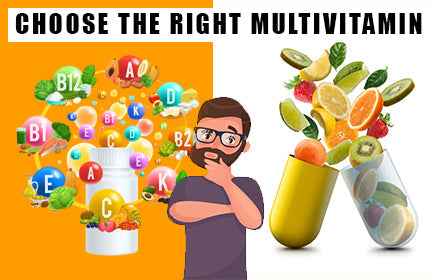Can You Alleviate Depression Symptoms Through Diet?
According to the Anxiety and Depression Association of America, more than 16 million adults or about 7% of the population in the United States have been diagnosed with major depressive disorder [1]. Globally, the United States ranks 3rd, behind China and India, in per capita depression and anxiety cases [2]. Paradoxically, though, many of the top countries are developing nations or nations typically associated with lower-than-standard infrastructure, healthcare systems, or economies, so why does the United States rank so high?
That is a substantial question we will not be able to answer or solve in a single article, but a Western diet may play a causal role [3]. We have already examined the consequences of the Western diet on male fertility and sperm count [4], so the possibility that specific traits of the Western diet play a role in the increased incidence of depression in the United States is not implausible.
We also know that the Western diet has been widely linked to increased rates of obesity, diabetes, heart disease [5]. Further, research has shown the diet is associated with poor memory function, hyperactive immune response, and inflammation, all of which affect symptoms of depression [6] [7].
The gut has intense power to influence the brain. For example, have you ever been too nervous to eat? Or have you ever experiences nausea when you get excited? Researchers have investigated this phenomenon by calling the gut the second brain. Researchers believe there is an association between the gut’s microbiome and central nervous system disorders, which may contribute to the development of mental illness, as noted by a 2016 study [8].
Moreover, the enteric nervous system (ENS) is the cellular lining that covers the whole gastrointestinal tract, and the ENS sends signals to the brain through millions of nerve cells. At first, researchers believed that the brain influenced gut health, but scientists at John Hopkins think it may be reversed [9].
In this article, we will examine necessary dietary steps you integrate into your lifestyle to take control of the signals your gut it transmitting to your brain.
Learn Your Trigger Foods
We have already examined the chronic effects of a high-processed food diet, including having a deteriorated microbiome and an overall less healthy life [10].
Also, these processed foods are specific ingredients that certain people may be predisposed to, such as refined sugars, dairy, gluten, grains, and soy. These ingredients can be inflammatory triggers for some people, and because the health of the gut may be closely aligned to mental health, these ingredients may cause depression symptoms. These potentially inflammatory compounds require a cleaning phase to fully exit the body, which is usually about thirty days.
Many studies are finding that inflammation could be relevant to a large number of patients with depression, as noted in a 2019 meta-analysis [11]. In the study, researchers examined thirty-seven studies comprising of 13,541 patients with depression and concluded, “about a quarter of patients with depression show evidence of low-grade inflammation, and over half of patients show mildly elevated CRP [c-reactive protein; produced by the liver and sent into the bloodstream in response to inflammation] levels” [11]. Further, the researchers noted there were “significant” differences between the “prevalence of low-grade inflammation” between healthy, control patients and patients with depression [11]. Therefore, learning your trigger foods and avoiding them could be an effective way to decrease depressive symptoms.
Consider Eating Organically
Although it may be expensive, consider eating organically, and even if you cannot go fully organic, phasing certain food groups into their organic replacements can help decrease inflammation. For example, consider beginning with dairy products, then move to produce, then meat. As you being to transition, you may be amazed that eating organically is not as costly as you think; it is all about priorities.
Non-organic foods have higher levels of pesticides and herbicides like glyphosate, which have been linked to many adverse effects, including increased inflammation and cancer risks [12]. Through deciding to make the switch to a whole foods-based, organic diet, you will experience the long-term benefits of eating organically, such as less inflammatory risks which may benefit mental health [13].
Focus on Your Deficiencies
Simply eating a lot of food will not guarantee you will be non-deficient in nutrients. For example, a 2012 study found that there is a high correlation between being obese and deficient in many micronutrients, which can lead to increase health risks, such as diabetes or depression [14].
Unless you have a perfectly balanced and diverse diet, chances are you are deficient in a handful of nutrients. Specific nutrients, in fact, are beneficial for mental health.
For example, B vitamins have been shown to play a vital role in psychiatric health [15] [16]. A 2013 study found that B vitamins could be used to improve mood symptoms and mental health quality of life in adults with depression [17], and a 2019 study found that better B-vitamin statuses may have a role in impacting positively on mental health in older adults [18].
If you are interested in reading more about the benefits of B vitamins, check out “The Importance of a B-Complex Supplement.”
Magnesium is another vitamin that has been linked to mood health and neurological disorders [19]. For example, a 2017 study found that dietary magnesium intake was significantly associated with a reduced risk of depression [20], a 2012 study found there was an inverse relationship between magnesium intake and depressive symptom [21], and a 2017 study found that magnesium supplementation leads to improvement in depression status [22].
If you are interested in reading more about the benefits of magnesium supplementation and the consequences of magnesium deficiency, check out “Magnesium: Deficiency Effects and Positive Benefits.”
Zinc is also another nutrient that may be beneficial for mood health, as a 2011 study found dietary intake of zinc was inversely associated with depression [23], and researchers are investigating the possibility of using zinc in depression treatment [24] [25].
Further, because the brain is 80% fat, being deficient in essential fatty acids, such as Omega-3, can increase the risk of depression symptoms [26], and studies have found that supplementing with omega-3 can help alleviate depression symptoms and bipolar disorder [27] [28] [29] [30].
Although these nutrients can be consumed through foods, some people may find it challenging to get adequate amounts through diet alone. Healthmasters offers these supplements in high-quality forms in the following products: B Complex, Magnesium Brain Food, Zinc Glycinate, and Norwegian Omega 3.
By ensuring you are receiving proper levels of these nutrients can help to improve mental health and your lower chances of experiencing depression symptoms.
Nurture Your Microbiomes
It is already known that dysfunctions in the gut microbiome play a role in “Autoimmune diseases such as diabetes, rheumatoid arthritis, muscular dystrophy, multiple sclerosis, and fibromyalgia” [31].
Additionally, there is an increasing possibility that the bacteria that live in your gut play a role in mood, although current research rather new.
For example, a 2018 study began by stating, “Gut microbiome diversity has been strongly associated with mood-relating behaviours, including major depressive disorder (MDD). This association stems from the recently characterised bi-directional communication system between the gut and the brain, mediated by neuroimmune, neuroendocrine and sensory neural pathways” [32]. There is also newer evidence that shows there may be a microbiome in the brain [31], which may play a role in mood disorders.
Even common-day activities, such as using sucralose, can greatly desecrate probiotic health and activity [33] [34].
Therefore, overuse of antibiotics and not nurturing the existing probiotics in the body may cause an increased risk of depression symptoms.
Conclusions
After reading this article, I hope you begin to understand the secure link between diet and gut health and maintaining a healthy mood. Promoting gut health through diet by avoiding certain foods, eating organically, focusing on nutrient intake, and nurturing the body’s microbiome can be a pivotal key in promoting mental health.
If you have any questions about any of the products mentioned in this article, please feel free to call our office at 800.726.1834.
References:
[1] https://adaa.org/about-adaa/press-room/facts-statistics
[2] https://www.usnews.com/news/best-countries/articles/2016-09-14/the-10-most-depressed-countries
[3] https://www.ncbi.nlm.nih.gov/pubmed/20048020
[4] https://healthmasters.com/harvard-western-diet-devastates-sperm-count
[5] https://www.ncbi.nlm.nih.gov/pubmed/26400973
[6] https://www.ncbi.nlm.nih.gov/pubmed/24681251
[7] https://www.ncbi.nlm.nih.gov/pubmed/24901538
[8] https://www.ncbi.nlm.nih.gov/pubmed/26865085
[9] https://www.hopkinsmedicine.org/health/wellness-and-prevention/the-brain-gut-connection
[10] https://healthmasters.com/chronic-effects-processed-foods
[11] https://www.ncbi.nlm.nih.gov/pubmed/31258105
[12] https://healthmasters.com/adverse-effects-glyphosate
[13] https://time.com/4871915/health-benefits-organic-food
[14] https://www.ncbi.nlm.nih.gov/pubmed/22462011
[15] https://www.ncbi.nlm.nih.gov/pubmed/15029091
[16] https://www.ncbi.nlm.nih.gov/pubmed/22726236
[17] https://www.ncbi.nlm.nih.gov/pubmed/23738221
[18] https://www.ncbi.nlm.nih.gov/pubmed/30692033
[19] https://www.ncbi.nlm.nih.gov/pubmed/29882776
[20] https://www.ncbi.nlm.nih.gov/pubmed/27807012
[21] https://www.ncbi.nlm.nih.gov/pubmed/23238611
[22] https://www.ncbi.nlm.nih.gov/pubmed/28241991
[23] https://www.ncbi.nlm.nih.gov/pubmed/21932045
[24] https://www.ncbi.nlm.nih.gov/pubmed/24130605
[25] https://www.ncbi.nlm.nih.gov/pubmed/28713269
[26] https://www.ncbi.nlm.nih.gov/pubmed/27113121
[27] https://www.ncbi.nlm.nih.gov/pubmed/24643636
[28] https://www.ncbi.nlm.nih.gov/pubmed/24987942
[29] https://www.ncbi.nlm.nih.gov/pubmed/28987035
[30] https://www.ncbi.nlm.nih.gov/pubmed/19499625
[31] https://healthmasters.com/potential-human-microbiome
[32] https://www.ncbi.nlm.nih.gov/pubmed/29397391
[33] https://www.ncbi.nlm.nih.gov/pubmed/30721958
[34] https://healthmasters.com/sucralose-not-%E2%80%9Csafe%E2%80%9D-scientific-review

